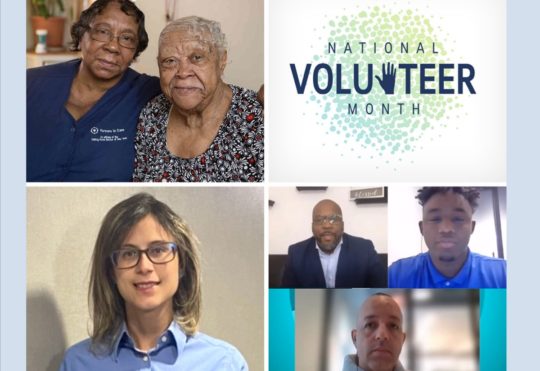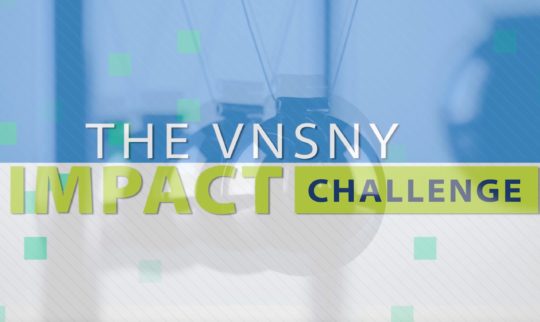New Clinical Protocols Are Helping to Guard Against Opioid Overuse

With opioid addiction surging across the nation, VNSNY is implementing a series of cutting-edge programs across its business units to encourage alternative approaches to pain management, and to flag and address any cases among patients or health plan members involving potential overuse of opioid medications.
“For home care patients who are referred to us following surgical procedures like hip or knee replacements, we’re now urging their prescribing physicians to use non-opioid medications like ibuprofen and acetaminophen whenever possible, along with other modalities such as heat and ice, exercise therapy, meditation and massage,” says Angela Barody, Vice President for Quality and Customer Experience. “When patients are prescribed an opioid, we’re advising their doctor to switch to a milder medication once the initial prescription is finished, so that no one is on opioids for longer than two weeks.”
VNSNY has established an opioid reduction workgroup that is working with the Home Care division to finalize specific protocols in this area, notes Angela. In one change, clinicians are no longer automatically advising patients to take their pain medication prior to physical therapy sessions. “Instead, we’re instructing them to assess patients’ pain levels prior to each session, to see if medication is required,” says Angela.
VNSNY is taking similar steps in its other business units. VNSNY CHOICE Health Plans has instituted a program that automatically flags incoming prescription requests for opioid medications that exceed a certain dosage. These prescriptions then require either a pharmacy override or prior authorization from the ordering physician before they can be filled. CHOICE has also implemented an Opioid Overutilization Intervention Program that identifies plan members who have received opioid prescriptions from three or more providers and three or more pharmacies over a 90-day period. The CHOICE in-house pharmacy staff then contacts the prescribers to verify that their prescribing patterns and dosages are clinically appropriate. This intervention helps identify potentially fraudulent member and provider activities, to ensure the safety of plan members and limit any abuse and waste. If a CHOICE plan member does develop problems with opioid dependence, the CHOICE member may be referred to a multifaceted treatment approach that could include medications to counter opioid-related cravings.
“VNSNY Partners in Care is also working with our workgroup to adapt these reduction practices and to determine how their home health aides can assist in opioid reduction,” adds Angela. “At the same time, a number of our Community Mental Health clinicians who work with clients struggling with opioid use have undergone training in how to reverse overdoses through methods such as Narcan.” In addition, VNSNY Hospice and Palliative Care is working to educate families of hospice patients about proper opioid disposal practices and is sharing this training with VNSNY Home Care staff.
With all of these approaches, VNSNY is collaborating closely with its referring hospital partners to make sure everyone is on the same page. “Our partner hospitals have told us how important opioid reduction is to them, and we’re pushing equally hard on our end,” says Angela. “Because our field staff and care coordinators are in frequent touch with our patients and plan members, we’re an ideal gatekeeper to help make sure opioids are prescribed responsibly, and that people only take them when they’re really needed.”
The Take-Away: VNSNY is taking steps across its business units to reduce the use—and prevent the overuse—of potentially addictive opioid medications.

